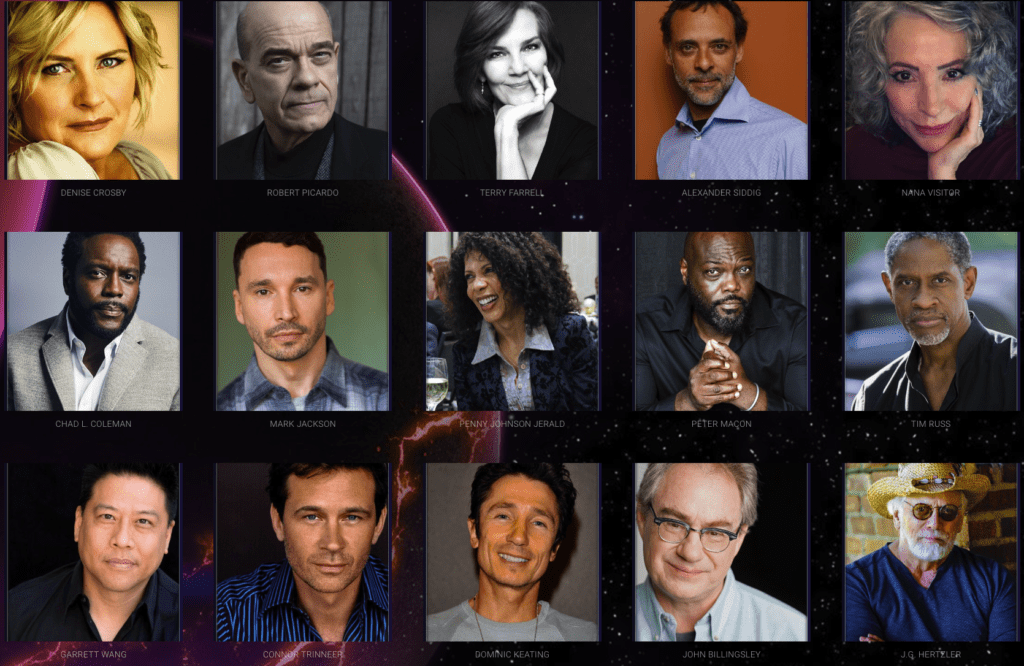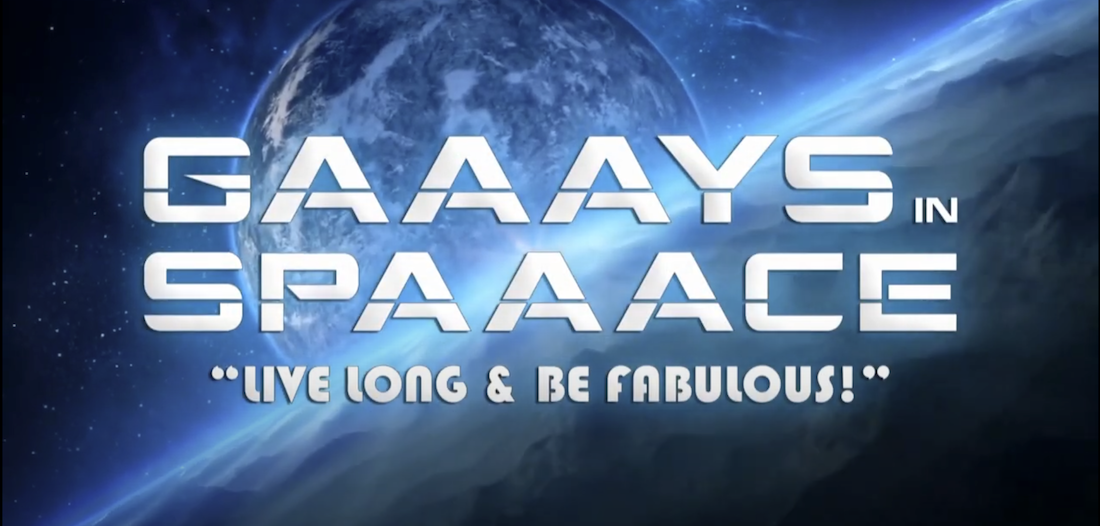Historically, the space industry has experienced trouble with diversity in its workforce. However, the nonprofit Gaaays in Spaaace is now pushing back against this longstanding issue, using pop culture and science fiction like Star Trek and The Orville to do it.
As government organizations like NASA and private sector space agencies like SpaceX and Blue Origin continue to push us towards the final frontier, diversity in such organizations has become a key issue. Talent, especially in engineering, science, and technology roles, is vital to the success of future space missions. However, people from diverse backgrounds are less represented in the industry.
Although significant work has been done in Europe regarding diversity in the space industry, chiefly focused on the underrepresentation of people of color and women, people in the LGBTQ+ community have little representation and fewer external supports; until now.
Gaaays in Spaace (GiS) is a non-profit organization that promotes inclusivity and diversity in science fiction and space-related communities. Founded in 2016, the organization is made up of LGBTQIA+ individuals and allies who geek out together over space exploration and science fiction.
“We were founded in 2016 after Star Trek: Beyond came out, showing Sulu as an openly gay character. He had a husband and a daughter… and that was the first time that there was ever a gay character on screen in the Star Trek universe,” Dan Deevy, the founder and president of GiS, told The Debrief. “It took us 50-plus years to finally be reflected as a part of Roddenberry’s utopian vision for humanity.”
Deevy, and a group of other Star Trek fans, threw a small party after the 2016 Star Trek: Vegas conference to celebrate the science fiction milestone. Expecting a few friends, Deevy was surprised to see Star Trek celebrities show up and a jam-packed room.
“And so, at that moment, I thought, ‘Well, this is what I do now,’” Deevy said.
With dozens of events since, including multiple appearances at the San Diego Comic-Con, and with their first official Diversity & Inclusion Convention this May in Philadelphia, GiS is becoming a small but powerful force in pushing for more inclusion in the global space industry.
“We have worked with Zero G, and we partnered with an organization called Space Prize that provides opportunities for and empowers young women to enter the space industry,” Deevy explained. “We work with the National Space Society and with the Earthlight Foundation. We’ve presented at the New Worlds Conference in Austin.” Deevy explained they had given presentations on the topic of diversity at another large space exploration company, but was unable to specify due to confidentiality agreements. GiS boasts a handful of other impressive partnerships including Disney+, Hulu, Foundation for the Future, and the University of Mississippi’s Center for Air and Space Law.
The strategy is fairly organic, according to Deevy. The pop culture side of the project is well established, but with every interaction in the professional space industry, Deevy and his team learn how these organizations function, how they hire, their perspectives on this issue, and their work culture and climate. As they continue to work with the private space sector, Deevy knows that the government agencies will soon follow.
“NASA is the next thing in our sights,” Deevy said with a chuckle.
The momentum for change goes beyond Human Resources teams and altering hiring practices. Rather, it’s about changing the culture overall. How do you impact a culture of mainly white middle-aged men? According to Deevy, you lead by example.
GiS hosts panels at various space industry events and provides speaking opportunities for scientists, engineers, and technologists from various marginalized communities. The discussions are about real space exploration and highlight different ideas and even out-of-the-box thinking; ideas and thinking that often only occur when people from different backgrounds gather, versus what often happens, an echo chamber. However, GiS has some extra help in pulling in those middle-aged white decision-makers by stacking those panels with something they undeniably and uncontrollably love; Sci-fi. You take three or four real engineers who are working for various space firms and insert one or two Chief Engineers of the starship Enterprise, and it makes for one helluva of a fun conversation.
“The way I’ve described it to people is that we use our celebrity friends as a gateway drug into the actual space industry,” Deevy explained. “You can take two people with completely different backgrounds, put them in a room, and they realize they speak the same language. They speak Trek. And that is all that matters.”
Utilizing his rolodex of friends he made as a pop culture journalist, Deevy’s buddy list covers science fiction icons, actors from Seth Macfarlane’s hit show, The Orville, as well as more Star Trek celebrities you can shake a phaser at.


“Star Trek has always had a reputation for inclusion, and yet it took a very long time in our franchise to have an openly gay character,” Robert Picardo told The Debrief in an interview. Picardo played the role of the Doctor in Star Trek: Voyager and is a key supporter of Gaays in Spaaace. He also sits on the executive board of The Planetary Society. “And working on Star Trek has inspired so many members of the real science and engineering community to aspire and pursue their goals in space exploration and technology, so as an actor, we can inspire people and focus our influence on important issues.”
GiS recently closed its first scholarship program for young people who are members of the LGBTQ community to attend an all-expenses paid trip to Huntsville, Alabama to attend their famous Space Academy and has multiple upcoming partnerships with other private space firms, including a large player in the ion satellite propulsion industry. On May 5th thru 7th, in Philadelphia, GiS is hosting their “Galactic Diversity & Inclusion Convention,” and the list of both sci-fi celebrities and real scientists is pretty impressive. Tickets are available. One featured speaker is Dr. Chance Glenn, who hosts “Ask Dr. Chance,” a special 10-episode podcast about space exploration, science, and technology in partnership with The Debrief.
“We’re living in a time when not just the LGBTQ community is under attack, but science itself. We are living in a time when facts don’t seem to matter, or count, or be believed. It’s this wild kind of conspiracy laced world,” Picardo explained. “So I think, in a way, an organization like Gaaays in Spaaace realizes, ‘Hey, we’re fighting a battle that’s hard enough to fight in the old world where science was respected.’ Now, when science itself, facts themselves, are under attack, then I think it creates a partnership in this fight. Science fiction dreams the dream, and then reality is challenged to catch up. That is what GiS is trying to do. They are growing and want to realize that imaginary future.”
For the full interview with Star Trek: Voyager’s Robert Picardo, check out this special bonus episode of The Debrief Weekly Report.
MJ Banias is a journalist and podcaster who covers security, science, and tech. Follow him on Twitter @mjbanias.

